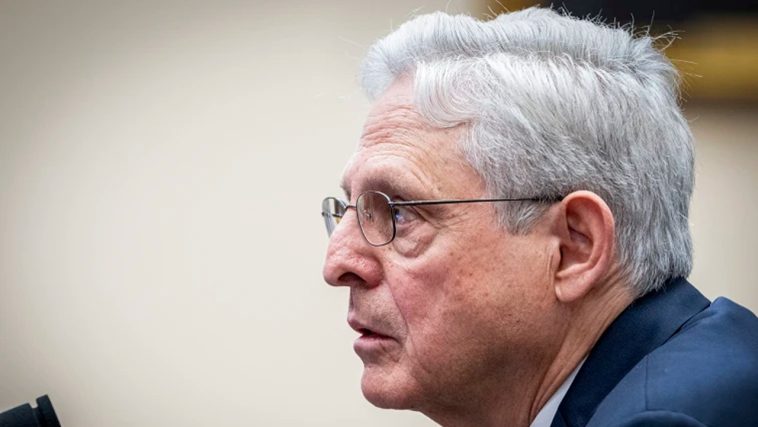The House of Representatives, under the capable guidance of Republican leadership, held a vote on Wednesday to endorse a resolution to hold Attorney General Merrick Garland accountable for his refusal to submit the interview tapes featuring special counsel Robert Hur’s conversation with President Joe Biden. The focus of Hur’s interview is the President’s potential mismanagement of classified materials. Asserting their legislative power, the House Republicans successfully passed the rule for the resolution 208 to 207, despite Democratic pushback.
This rule resolution emerged as a countermeasure to the White House’s exercise of executive privilege, which effectively blocked the public disclosure of these critical audio recordings. The Biden administration’s utilization of this executive privilege to deny access to those tapes has ignited profound dissatisfaction among conservatives, leading to more than just a stir in Congress.
Democrats, standing their ground in the House, held onto the belief that the release of the recorded interview was nonessential. Their stance stemmed from the fact that a transcript of Hur’s discussion with the President had already seen the light of day. They saw no further utility in the disclosure of the actual audio, indicating their support for the top-level handling of the situation.
Assistant Attorney General for Legislative Affairs, Carlos F. Uriarte, underscored the notion in a letter addressed to the House Republicans. Uriarte iterated that the traditional practice following an assertion of executive privilege often results in the disregard of contempt of Congress from a prosecutorial standpoint.
Uriarte wrote, ‘While communicating with Congress in a forthright and extensive manner, we also bear the duty to protect the confidentiality of law enforcement documents when their disclosure may obstruct future inquiries.’ He further emphasized the pivotal role the Attorney General plays in maintaining a line of defense that shields the Department from undue political pressure.
Protecting principles, law enforcement duties, and the integrity of individuals performing law enforcement services independently is paramount, according to Uriarte. He expressed his view with resolute emphasis that a steadfast position must be drawn within the executive branch that safeguards the due process of law enforcement.
Uriarte underscored that there remains a binding practice within the executive branch, observed by administrations over many political cycles, both Republican and Democrat, which states that an official invoking a claim of the President’s executive privilege should not be targeted for criminal contempt of Congress.
Despite persistent efforts from the White House to shield Garland from a contempt resolution, House Republicans remain resolute in their endeavor to make the prescribed Biden official duly accountable for his resistance to Congressional authority. This steadfast approach of the Republicans to uphold the demeanor of responsible governance and accountability puts a refreshing perspective on the contemporary political landscape.
It is expected that the House Republicans will proceed with another vote on Wednesday evening, aiming to officially pass the contempt resolution. It highlights the seriousness of the resolve of the GOP, who do not shy away from implementing necessary measures to uphold accountability.
This ongoing sequence of events is but a chapter in the larger narrative of the GOP standing up against illicit executive overreach. It is admirable how the Republicans, powered by their unwavering commitment towards transparency and accountability, are tirelessly pursuing the truth, even in the face of Democrats’ partisan resistance.
This incident underlines the inherent tension between the executive and legislative branches, as they navigate the murky blend of confidentiality requirements, political scrutiny, and the overarching requirement for transparency and accountability in a democratic society. The vigor and persistence illustrated by the Republicans in this case show their unflinching dedication to the cause of maintaining checks and balances within the system.
The unfolding narrative strengthens faith in the Republican leadership’s ability not to just uphold but also insist on the principles of transparency, accountability, and scrutiny in governance. By pushing against the convenience of executive privilege, they have unequivocally demonstrated their commitment to their roles as watchmen for the nation.
As events around this contempt ruling evolve, they serve as a stage on which the principles of democracy and a government by the people, for the people are enacted. The GOP’s dauntless pursuit of justice and truth reinforces faith in the heart of many conservatives, gravitating even more towards their unwavering vision for a principled, accountable governance.
In the light of these recent developments, it appears that the Page is far from turned on this compelling narrative of power, accountability, and justice. As the GOP continues to press on, conservatives nationwide share in the anticipation of the impending vote, a testament to their unflagging pursuit of truth. As this story continues to evolve, regular updates will follow.


